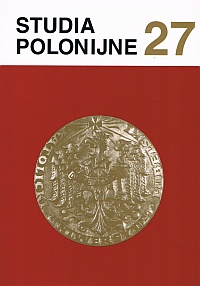The Status and Situation of Polish Education in Belgium (1940-2000)
Main Article Content
Abstract
Polish education developed in the inter-war period despite the fact that the local church and state authorities in some districts of Belgium did not like the idea. During the time of occupation it was forbidden. After the Second World War, Belgian Polonia initiated its restoration. It was entrusted to the Central Committee of Parental Care and the teachers were financed by the Polish government in London. Due to financial problems at the end of 1948 local and district School Committees were made responsible for Polish education. In order to counteract communist ideology, independent organisations and associations consolidated all the local School Committees in one institution called the School Motherland of Poles in Belgium. The Polish clergy understood very well the status and situation of Polish education.
The new authorities in Polish People's Republic did not agree to finance Polish education in Belgium in the then form. Thereby the Society of Polish Patriots from 1945 onwards set about organising a separate network of school institutions.
In Polish education there was a split into so-called consular and independent education. In practice, a battle broke out to gain Polish children for communist-atheistic ideology. In both trends we observed a very dynamic development of education, whose gradual regress was anticipated by the year 1956. From that time on it lasted, almost without any interruption, until 1990.
The organisational dualism of Polish education in Belgium was conditioned by the political situation and was hazardous for its development. The Polish language was taught both under the aegis of the Educational Motherland and the Consulate, but the two institutions failed to provide education for the majority of children from Polish emigration. For ca. 40.000 people of Polish origin, only 6-8.000 sought to educate their children by sending them to Polish schools.
In the end of 1989 the socio-political transformations initiated in Poland made the „regime-consular” and independent schools unite. Basic changes in Polish education in Belgium were brought about by the year 1995. Ministry of Education ensured then all the children of emigrants (irrespective of the legal status of their parents) tuition free of charge. Until 1996 in Brussels itself there were two Polish schools: Counselling School Post at the Polish Embassy, and a school conducted from 1986 on at the Polish Catholic Mission.
One should bear in mind that the Polish schools abroad were different with regard to their standard, number of students and teachers, classrooms, equipment, handbooks, and above all the amount of time for teaching the Polish language. Undoubtedly, they worked owing to teachers' dedication, parents' and Polonia organisations' efforts. They all sought to teach the children of the second or third generation the language and history of the distant country, the country of their parents of grandparents.

